Uncategorized
-
 Materials Science
Materials ScienceRecyclable superplastics made with old chemistry
A new durable plastic and a self-healing gel are the first high-performance polymers that are easily recycled.
By Beth Mole -
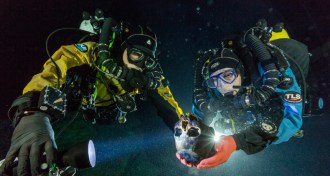 Anthropology
AnthropologyTeen’s skeleton ties New World settlers to Native Americans
Underwater cave discovery in Mexico shows genetic range of New World’s ancient Asian colonists.
By Bruce Bower -
 Health & Medicine
Health & MedicineBlood test predicts if false labor is headed for delivery room
A test for white blood cells and specific genetic markers may offer insights into whether preterm contractions are false labor or the real thing.
By Nathan Seppa -
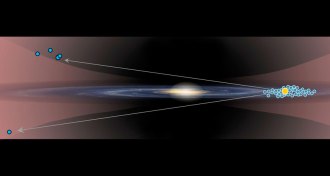 Astronomy
AstronomyMilky Way’s far side reveals some secrets
Variable stars provide first direct measurements of distance to the far side of the Milky Way.
-
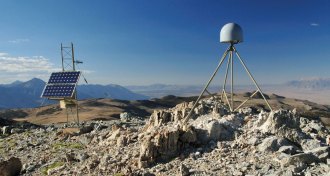 Earth
EarthTiny earthquakes may follow groundwater loss
Draining California’s aquifers may stress San Andreas Fault, triggering earthquakes and forcing mountains to rise.
By Meghan Rosen -
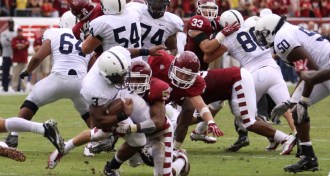 Neuroscience
NeurosciencePlaying football linked to brain changes
Division I college football players have smaller hippocampi, especially if they’ve had concussions.
By Nathan Seppa -
 Quantum Physics
Quantum PhysicsNext-gen quantum teleportation in just 2 photons
Researchers teleport quantum information between two photons instead of the standard three.
By Andrew Grant -
 Oceans
OceansDeepwater Horizon methane lingered longer than thought
Microbes may not have consumed methane from the 2010 Deepwater Horizon oil spill as fast as previously thought.
-
 Climate
ClimateAntarctic glacier melt is unstoppable
The inevitable collapse of Antarctic’s western glaciers could raise global sea level by more than 4 meters in coming centuries.
By Beth Mole -
 Paleontology
PaleontologyAsteroid strike spurred quick chill that led to dinosaurs’ demise
After an asteroid struck Earth 66 million years ago, ocean temperatures fell 2 degrees Celsius, leading to mass extinction of dinosaurs and other life.
-
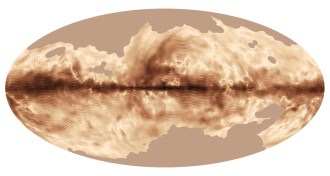 Astronomy
AstronomyMilky Way’s magnetic field mapped
The Planck telescope sees the galaxy’s magnetic field in polarized light bouncing off interstellar dust grains.
-
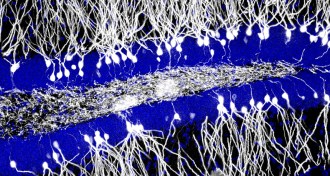 Neuroscience
NeuroscienceBirth of new brain cells might erase babies’ memories
The growth of new neurons in early childhood may explain why adults can’t remember being infants.
By Meghan Rosen